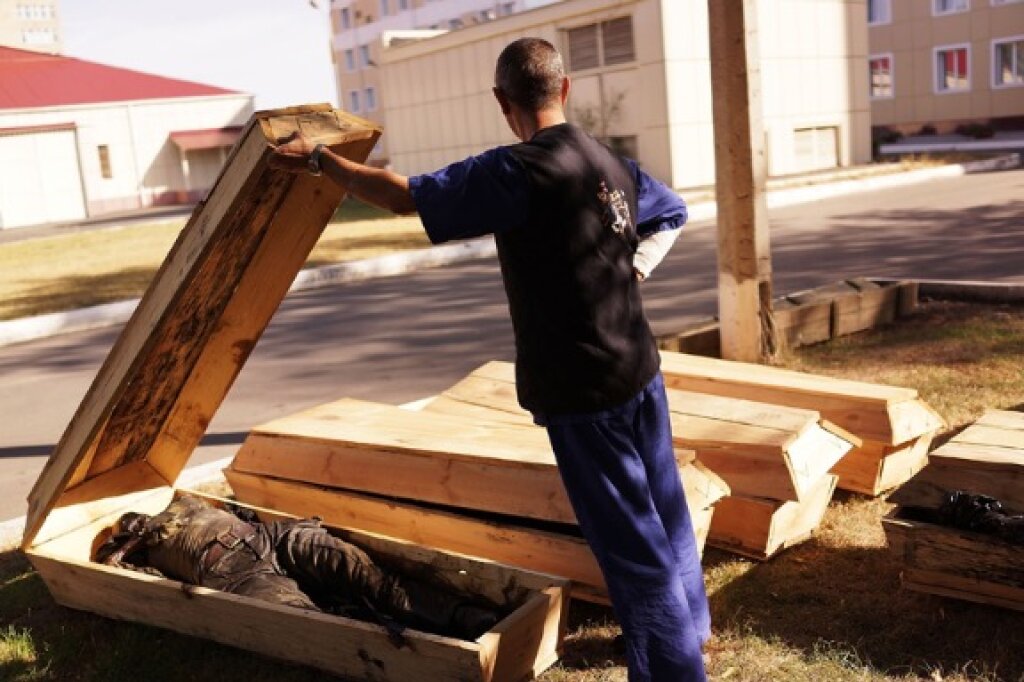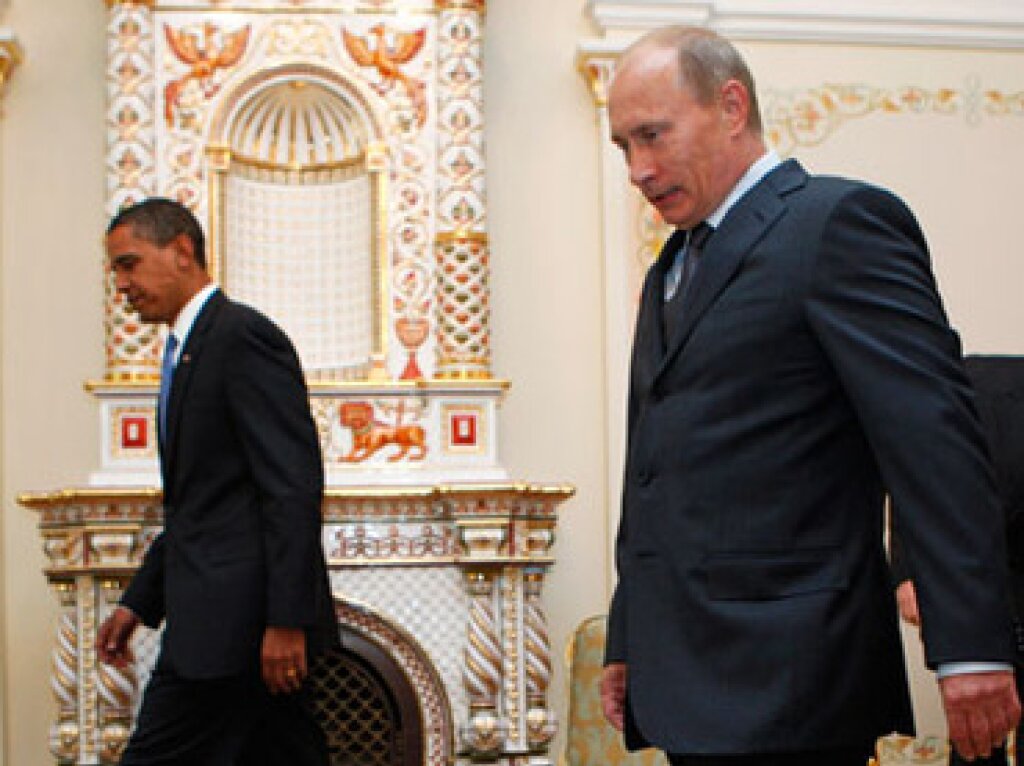A Russian version of this article originally appeared on colta.ru.
The rapid rise in Russian intolerance towards foreigners and democracy, along with a renewed emphasis on national exceptionalism, should not come as a surprise. We are dealing with a delayed reaction to the collapse of empire. This collapse shocked Russia in the early 1990s, but the ensuing period of continuous improvement in living standards delayed and softened the reaction to the the imperial downfall. As is so often the case, increased consumer confidence acted as a kind of anaesthetic. In the current economic downturn, the appeal of quasi-fascist discourse was predictable.
Of course, Nazism was also a reaction to a military defeat, the collapse of empire, and the sudden loss of Germany’s significance in the world. Fascism and national humiliation are thoroughly intertwined. Psychoanalysts studying the rise of fascism have argued that weakness, poverty and humiliation lead to a what they call "projective identification", which Melanie Klein connects to a paranoid-schizoid subject position. With the help of this projective identification, one can replace undesirable qualities with the stuff of phantasy. Projective identification entails the denial of one’s own ego and the identification with a strong leader and an all-powerful ethnic, social, or political group. This is usually experienced as a second birth, “standing tall” and achieving a new, aggressive masculinity that expresses itself in violence and war. Anything that could be seen as a sign of weakness or femininity is rejected; this includes liberalism and homosexuality. Typically, it is these same negative qualities that end up projected onto the “enemy.” This, too, is a feature of projective identification. Thus Ukrainians are systematically accused of fascism, while Russian fascism is displaced by a false idealization of one’s own image.
Crowdsourcing Aggression
But this only begins to describe the situation in Russia today. It is complicated by the paradoxes of post-imperial victimization. Just a glance at the map of Europe shows why Austria was the cradle of Nazism. Austria is a small, provincial country, where nothing remained of the majesty and power of the Hapsburg Empire. Russia is another matter, as it occupies a significant piece of the globe and is filled to the brim with nuclear warheads. From the outside, it hardly suits the role of victim. And yet Russia constantly portrays itself as a downtrodden nation: no one takes its priorities into account; the Americans don’t want to recognize its global significance; it’s been reduced to regional-power status and yet its “legitimate” rights to its former colonies and satellites are still not recognized. Russia constantly asserts that it is the victim of aggression. Meanwhile, the former republics that gained their independence seem to feel much better about their situation. The Ukranian victims of Russian aggression, for example, are experiencing a renewed sense of dignity, while the aggressor (Russia) bemoans its humiliation. In today’s political context, this victim discourse takes on particular significance.
Not long before his suicide, Walter Benjamin lamented that history is always written by the victors, and expressed the faint hope that the lives of the victims will nonetheless prove not to have been in vain, and that they will someday be remembered. Benjamin’s wishes have proved prophetic. World War II was followed by a radical reorientation of historiography; less is being written from the point of view of the victors and more from that of the victims. The turning point was in the 1970s, when the Holocaust and its symbol, Auschwitz, became central to the narratives of World War II. The French Historian Annette Wieviorka called it the “Era of the Witness." When Himmler was planning the final solution to the Jewish problem he justified the slaughter of children as a means of avoiding vengeance. And he expressed the certainty that the memory of the Jews would be erased along with the people themselves. Himmler thought that the Jews had no chance of leaving behind any testimony. But as early as the 1950s the Central Historical Commission of the Central Committee of the Liberated Jews had gathered an archive consisting of 18,000 texts. Today there are hundreds of thousands of testimonies to the Holocaust. There has been a shift from praising the heroism of the warriors to describing the fates of their victims. This shift has also affected the historiography on Russia’s role in the war. For example, more and more books discuss the Soviet soldiers' rape and pillage in occupied Germany. And these “undesirable” studies have perhaps become no less significant than analyses of the strategy of Marshal Zhukov. Enzo Traverso recently argued that only the victim’s experience is now considered significant, while that of the soldiers on any side looks like the pure expression of mindless violence.
I suspect that this shift from the military to the civilian is connected to a change in the understanding of sovereignty (which is given so much significance by the Kremlin). Carl Schmitt argued that sovereignty first and foremost expresses itself in the right to suspend the law and start wars. And he believed this right belonged to states. Today the situation has changed drastically. Even a superpower like the United States (so maligned now in Russia) tries to avoid deploying its armies abroad; if military force must be used, America prefers to confine itself to airstrikes. Meanwhile, the sovereign right to suspend the law and wage war has devolved onto bandit formations like Al Qaeda, ISIL, and the Somali, Nigerian, and Yemenite islamists.
The Russian attempt to overcome post-imperial trauma is playing itself out in the Era of the Witness. I think that the overwhelming significance of Crimea for Putin is in many ways conditioned by the lack of casualties during a campaign by “polite people” who managed to seize the territory without shedding innocent blood. But the Donbas campaign immediately went awry, starting with the downing of the Malaysian airliner. If one looks at the general image of the war conducted by these so-called independent republics, then we can see the significance acquired by the shooting of the bus near Volnokhova or the trolley in Donetsk. Meanwhile the Donbas war couldn’t produce a single heroic figure. The attempts to make heroes out of Girkin/Strelkov quickly petered out, to be followed by the grotesque figures like Zakharchenko, Tsarev, Plotnitsky or the infamous Arseny Pavlov, nicknamed “Motorola."
Motorola's Witnesses
This is a crucial moment, because, as many have noted before, the formation of the fascist consciousness requires an aesthetic phase— torchlight festivals, parades, uniforms, heroes of film, art, and literature, the demonstration of strength and unity. Our era, however, is utterly insensitive to the heroization of aggression and violence. “Motorola" and body bags are the range of images to which’s today’s fascist consciousness can appeal. And quasi-fascist discourse now unfolds in a contradictory space between the declaration of one’s own omnipotence and inborn strength on the one hand and the unceasing complaints about one’s own victimization on the other (the crucified boy here is an instructive Christian symbol). Today’s Russian fascist is simultaneously omnipotent and persecuted.
We are all social beings, and we always find our identity in groups. But our identity and behavior depend on the groups that we ourselves have chosen. I’m not a fanatical follower of psychoanalysis, but it seems to me that it makes sense to try to understand the situation with the help of Melanie Klein’s disciple, Wilfred Bion.
Bion proposed that groups come together in a variety of types. He called the first type the “work group,” and gave the name “basic assumption group” to the second. The work group is a collective that develops democratic individuality. Its purpose is to carry out a task, and therefore it assumes both its members’ cooperation and role differentiation. By and large, these are the groups that make up a democratic society. One of the important features of the work group is the capacity for solidarity, without which the group could not carry out its task. In my opinion, it is the primacy of the work groups in democratic societies that explains their capacity for mass displays of solidarity, such as the recent rallies in support of Charlie Hebdo.
Russian society cultivates basic assumption groups (Bion distinguishes various subtypes, such as “dependency groups,” “fight-flight groups," etc.). These are the groups in which Klein’s paranoid-schizoid position reigns. These are the groups that are based on illusion, and on the denial of individual differentiation. Their primary task is the rejection of the ego in order to merge with some narcissistic primordial unity and become part of a homogenous and undifferentiated mass. Such groups are homogenous on principle; their members are utterly intolerant of any deviation from their single style of thought and behavior. If the work groups have an ideal that is not antagonistic to the ego ideal, the basic assumption groups have an ideal that utterly destroys the ego ideal and takes its place. The ego is crushed by an idealized, narcissistic leader, any attempt on whose authority is understood as an attack on the entire group and all its members. The leader deprives the group of reflexive thought, responsibility, a sense of guilty, and so on. A member of the work group is ready to accept his or her own limits and the difference of the Other, while a member of the basic assumption group aggressively denies both. Such groups are infantile and regressive, and their ideal is total homogeneity, the removal of all difference, and, as the French psychoanalyst Didier Anzieu wrote, the lost paradise of El Dorado. They are often highly destructive and completely subordinate to their leader, and easily move from panic to aggressive messianism.
Such a quasi-fascist consciousness, which has taken hold of the masses in Russia, is difficult to reconcile with the growing historical significance of victims, each of whom slowly takes on more and more individual features. The victims are individuated, as Gilbert Simondon would say, while the narcissistic “hero” of the paranoid/schizoid type becomes more and more savage in the eyes of the world, losing his individual characteristics. Where once this loss of individuality was not always significant, where homogeneity could be considered a virtue, now, in the Era of the Witness the “victors” find themselves erased from history due to their very facelessness. The crowd’s homogeneity ceases to be aesthetically appealing. Heroic self-assertion turns into infantilziation and the victimization of the very project of self-assertion. The more effort put into the projected overcoming of inferiority, the more the “hero” of the Russian world starts to look like a scruffy and troubled young man who lets himself be called “Motorola."
—Translated by Eliot Borenstein



